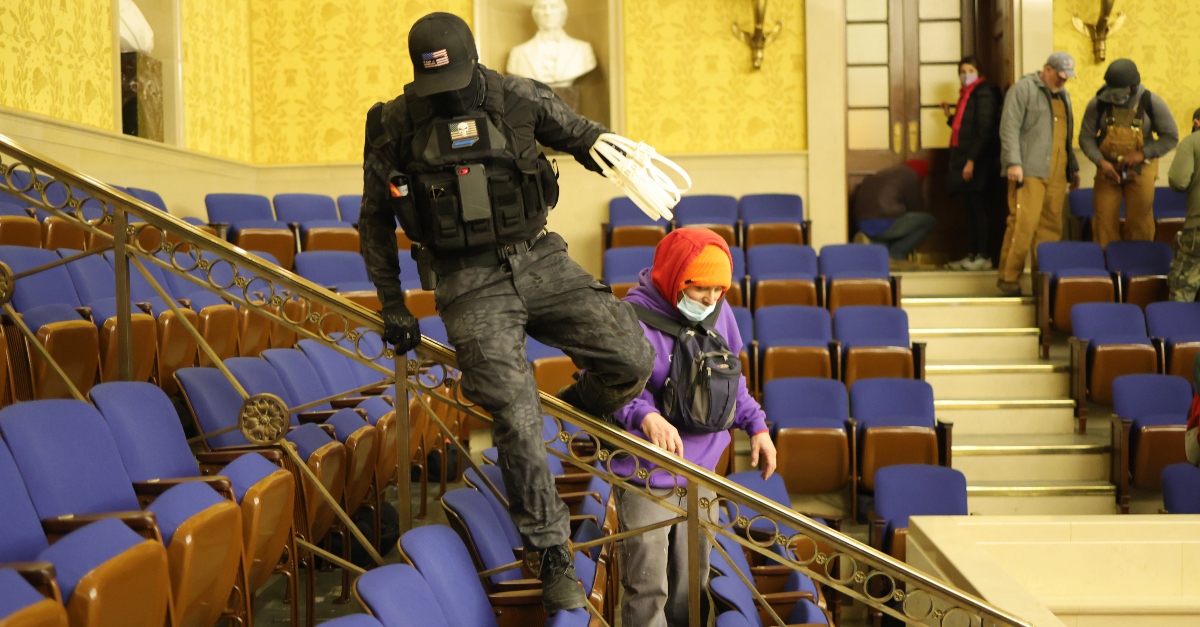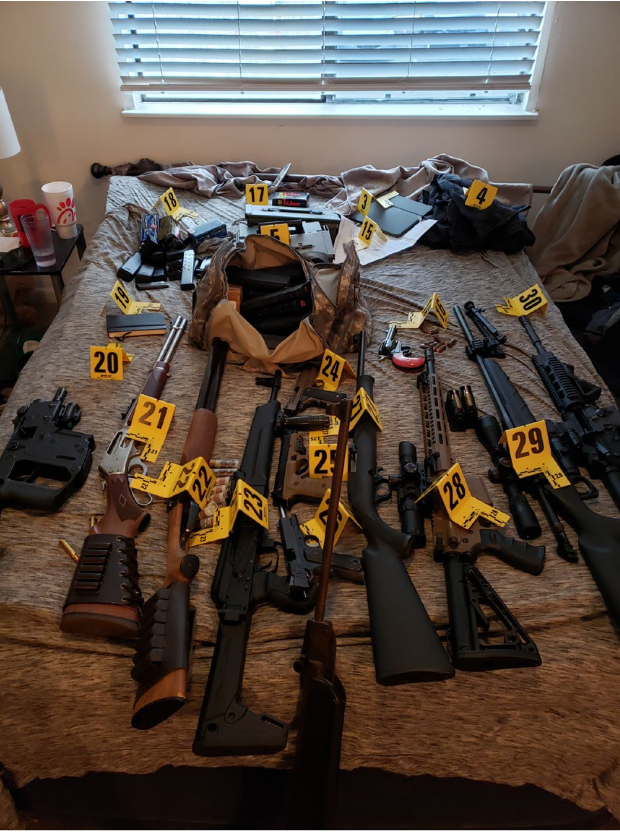
Lisa Marie Eisenhart and Eric Gavelek Munchel
Federal prosecutors more than doubled the charges against so-called “Zip-Tie Guy” Eric Munchel and his mother Lisa Marie Eisenhart in a superseding indictment filed on Wednesday, charging them with eight counts, including carrying a deadly or dangerous weapon into the U.S. Capitol.
That weapon was a Taser, prosecutors say.
Spotted jumping around the Senate chamber in military gear, Munchel got his nickname after wire photographs captured him carrying tactical restraints inside Congress. Munchel claimed to have picked up the plastic handcuffs that Capitol police left behind, but he was not the only person to have done so. Prosecutors have noted that they theoretically could have been used for taking hostages, though they have not specifically alleged that there was such a plot.

In this iconic image of the Jan. 6th siege on the U.S. Capitol, Eric Munchel could be seen toting plastic handcuffs as he jumped over a handrail inside the Senate chamber in full combat gear. (Photo via Win McNamee/Getty Images)
Ultimately, however, it was a different weapon that figured into the grand jury’s superseding indictment against Munchel and his mother Eisenhart. Authorities have long alleged that Munchel carried a black and yellow “Taser Pulse” in a black holster of his camouflage pants, a detail that appeared in an FBI affidavit against him back in January.
The superseding indictment accuses both of them of bringing that weapon inside the restricted grounds.
The D.C. Circuit previously issued a ruling leading to Munchel and his mother’s release from jail, honing in on the fact that prosecutors did not accuse of them of engaging in violence or vandalism. The ruling in their appeal subsequently raised the bar for prosecutors trying to keep accused U.S. Capitol rioters behind bars pending their trial.
“The District Court based its dangerousness determination on a finding that ‘Munchel’s alleged conduct indicates that he is willing to use force to promote his political ends,’ and that ‘[s]uch conduct poses a clear risk to the community,’” the appellate court ruled, effectively overturning the pair’s pretrial detention order. “In making this determination, however, the Court did not explain how it reached that conclusion notwithstanding the countervailing finding that ‘the record contains no evidence indicating that, while inside the Capitol, Munchel or Eisenhart vandalized any property or physically harmed any person,’ […] and the absence of any record evidence that either Munchel or Eisenhart committed any violence on January 6.”
The initial, three-count indictment charged only obstructing an official proceeding, entering a restricted building or grounds and a related violent entry or disorderly conduct charge.
The eight-count, superseding indictment also include conspiracy to commit obstruction, three weapon-related counts, entering and remaining in the gallery of Congress, and parading, demonstrating or picketing in a Capitol building.
Munchel’s lawyer did not immediately respond to an email requesting comment.
Days after Jan. 6, the FBI and Joint Terrorism Task Force executed a search warrant upon Munchel’s home in Nashville and allegedly located the items that he wore during the Capitol siege: the tactical vest with a “Punisher” comic book and Tennessee “thin blue line” patches; a baseball cap with a rifle and a flag; and five pairs of white plastic handcuffs. The FBI also found a stash of 15 firearms, including assault rifles, a sniper rifle with a tripod, shotguns, pistols, and hundreds of rounds of ammunition, pictures of which were in court records.

Munchel’s lawyers previously said that those weapons were lawful.
Read the superseding indictment below:
(Images from DOJ filings)